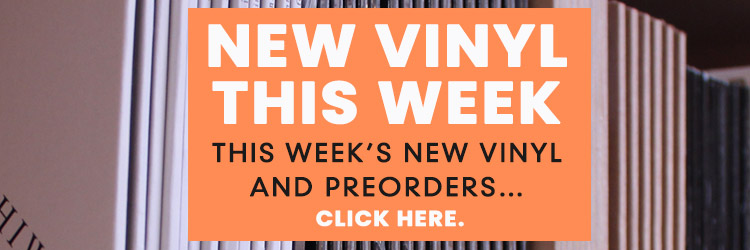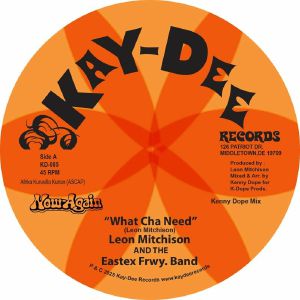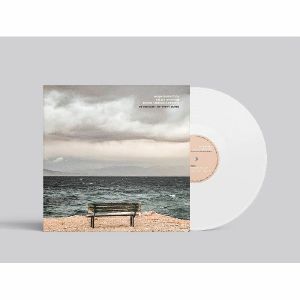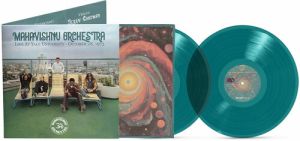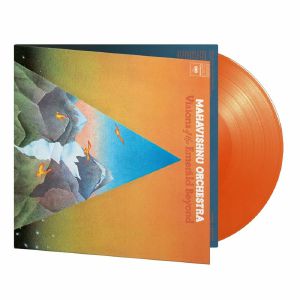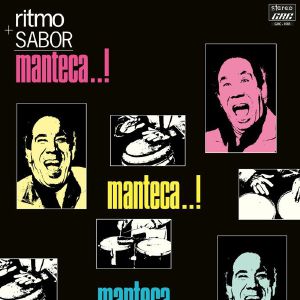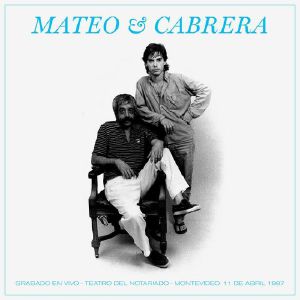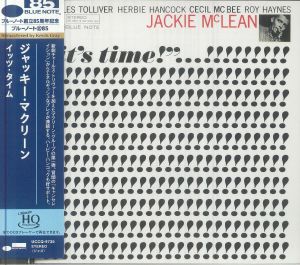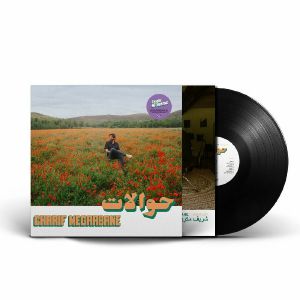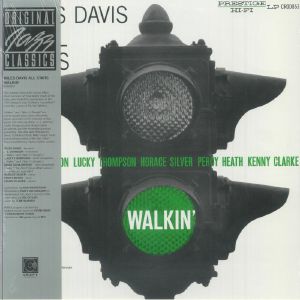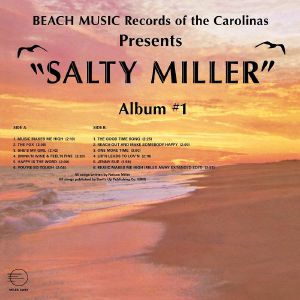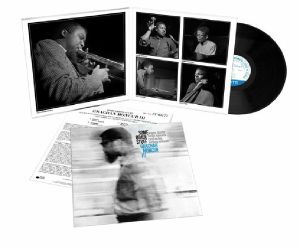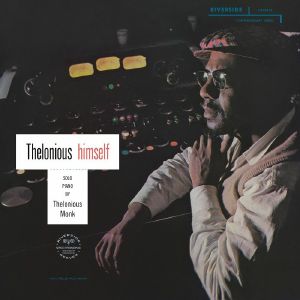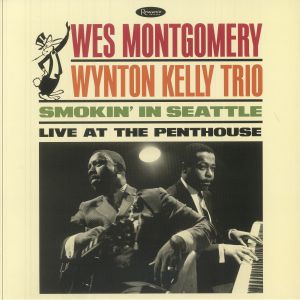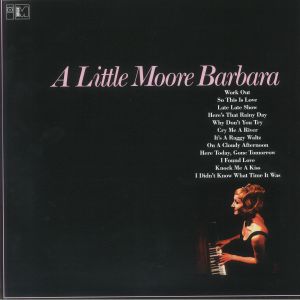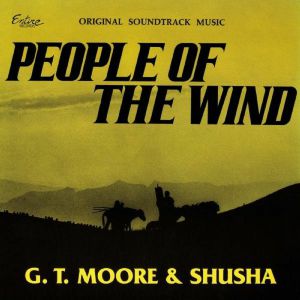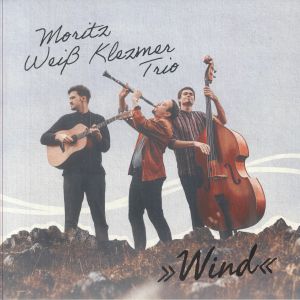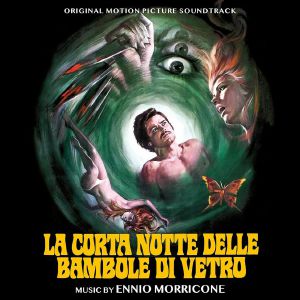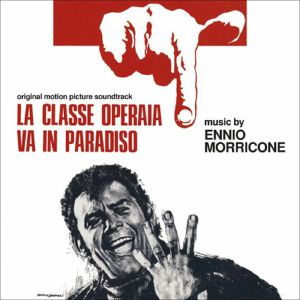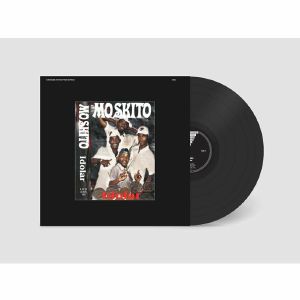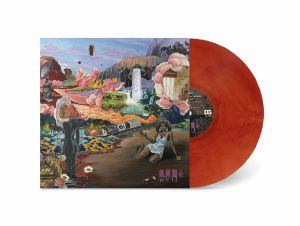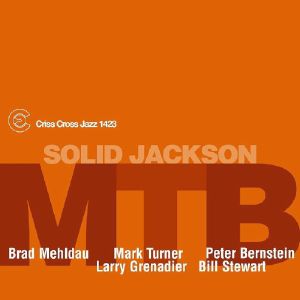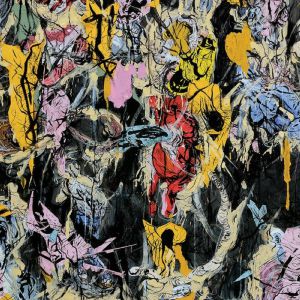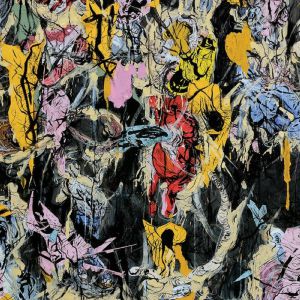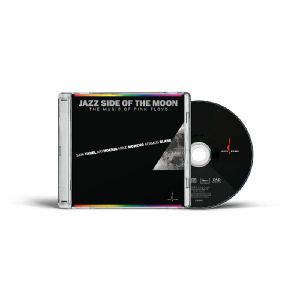Filter
Genre
在庫状況
アーティスト
レーベル
Featured
リリースタイトル
タグ
Back catalogue: Funk Soul & Jazz
Juno's full catalogue of Funk Soul & Jazz
シングル
Review: 'I'll Take You There' by Leon Mitchison, featuring mixes from Kenny Dope, is a standout release from Kay-Dee Records, in a rare label head-to-head with Now-Again Records. This special edition tosses us an unreleased remix from Kenny Dope, infusing his signature funk-in-the-trunk style into an authentic and primally mixed track, working directly from Mitchison's original 8-track tapes. Acclimatising the first's deeper grooves to Dope's dope, breaks-heavy production, the artist is truly deft at upcycling vintage sonic garms.
… Read morePlayed by: Voodoocuts
in stock $21.60
アルバム
In Memory Of That Song (Record Store Day RSD 2025) (gatefold 180 gram white vinyl LP with obi-strip)
Cat: AESLP 002. Rel: 01 May 25
in stock $26.66
Live At Yale University: October 28 1973 (limited gatefold 180 gram translucent teal vinyl 2xLP)
Cat: RENA 90201. Rel: 21 May 25
in stock $37.89
Visions Of The Emerald Beyond (50th Anniversary Edition) (limited numbered 180 gram audiophile orange vinyl LP)
Cat: MOVLP 2205C. Rel: 29 Apr 25
Review: Mahavishnu Orchestra, a believably metaphysical force in the alternate plane that is jazz-rock fusion, released Visions Of The Emerald Beyond in 1975, indicating an accessible and funk-influenced approach compared to their earlier works. Through sprawling fusion fugues and shorter, more structured pieces, the record is, despite its compositional variety, a fadeless, seamless connected suite. 'Lila's Dance' stands tall among the movements especially, though 'Eternity's Breath' and 'Cosmic Strut' also abound in their sooling psychic projections, demoing the radical result of the shaken-up, second Mahavishnu lineup, with Mahavishnu himself, sometime Miles Davis ensemble guitarist, John McLaughlin remaining at the helm.
… Read more in stock $36.76
Played by: Mukatsuku Records Chart, DJ ROCCA
in stock $23.85
Carpet Of Fallen Leaves (limited gatefold 180 gram vinyl 2xLP + booklet)
Cat: MM 201LP. Rel: 07 May 25
Review: Carpet of Fallen Leaves serves as the luminous introduction to Eddie Marcon, a folk-pop project from Eddie Corman and Jules Marcon. The collection takes in more than two decades of intimate, self-released recordings that all bring fragile beauty and melodic grace from Japan's underground psych-folk scene. Gentle guitar, soft organ and deft bass interlace with pristine vibraphone, flute and pedal steel sounds to form sparse and spare yet intricate arrangements. Collaborators like Ikuro Takahashi and Shintaro Sakamoto add their own contributions, and so songs shimmer with a real emotional depth and Eastern charm. Highlights like 'Tora To Lion' and 'Shoujo' inspire quiet wonder while capturing fleeting moments of everyday life with a real tenderness and elegance.
… Read more in stock $39.57
in stock $24.69
Cat: ORFEO 908591. Rel: 06 May 25
in stock $39.57
in stock $20.49
Review: Charif Megarbane, the Beirut-based multi-instrumentalist and composer, stretches his sonic vocabulary on this sprawling new full-length, a genre-hopping journey that draws as much from the Lebanese coast as it does from the wider diaspora. Where his earlier work painted intimate portraits of local life, this one looks outwarditoward cultural entanglement, exile, and exchange. 'Hanadi' kicks things off with a sax-led, Somali-inspired groove, while 'Dreams of an Insomniac' drifts through hazy keys and fluttering violin. 'Al Dollarji' recalls his signature Mediterranean funk, full of ornate strings, but 'Al Bahriye' disrupts the flow with hip-hop motifs and vocal samples. Collaborations feel purposeful: 'Helia', with Swedish composer Sven Wunder and the Stockholm Studio Orchestra, layers lush cinematic strings into Megarbane's idiosyncratic palette. Even miniature pieces like 'Sfiha' or 'Preamble to the Conclusion' feel essential, punctuating the record's narrative of displacement with clarity and warmth. It's a collection that resists linearity, folding nostalgia and innovation into a rich, borderless soundian informal transmission between traditions, cities and moods.
… Read more in stock $32.27
Walkin' (remastered) (B-STOCK) (180 gram vinyl LP with obi-strip)
Cat: CR 00853 (B-STOCK). Rel: 01 Jan 90
B-STOCK: Creasing to corner of outer sleeve but otherwise in excellent condition
Review: ***B-STOCK: Creasing to corner of outer sleeve but otherwise in excellent condition***
A striking album of the bop era that was highlighted by his undying conviction and ability to reclaim his status as a primary architect of the genre. The album is built around two exceptional groups: a sextet and a quintet, both anchored by Davis' blue-chip rhythm section of Horace Silver (piano), Percy Heath (bass) and Kenny Clarke (drums). The sextet features trombonist J.J. Johnson and tenor saxophonist Lucky Thompson, while the quintet adds Dave Schildkraut (alto sax), whose contributions, though lesser-known, are memorable. The title track, an extended 12-bar blues, shows Davis' ability to exude an air of detachment from the music, making it feel like an extension of his solo rather than the other way around. 'Blue 'n' Boogie', in contrast, is a lively, energetic tune where Davis and Johnson engage in spirited improvisation, with Johnson even quoting from Thelonious Monk's 'Rhythm-A-Ning'. 'Solar' introduces a delicate interplay, with Silver's piano solo displaying an Ellington-esque elegance. The album's final track, 'Love Me or Leave Me', foreshadows Davis' later breakthrough, with his swift and decisive trumpet solo hinting at the bold innovations to come. Walkin' stands as an essential bop-era classic, with Davis' brilliant command over his instruments and his bandmates, with pieces like 'Walkin'' and 'Solar' cementing its place as a foundational jazz work.
… Read moreA striking album of the bop era that was highlighted by his undying conviction and ability to reclaim his status as a primary architect of the genre. The album is built around two exceptional groups: a sextet and a quintet, both anchored by Davis' blue-chip rhythm section of Horace Silver (piano), Percy Heath (bass) and Kenny Clarke (drums). The sextet features trombonist J.J. Johnson and tenor saxophonist Lucky Thompson, while the quintet adds Dave Schildkraut (alto sax), whose contributions, though lesser-known, are memorable. The title track, an extended 12-bar blues, shows Davis' ability to exude an air of detachment from the music, making it feel like an extension of his solo rather than the other way around. 'Blue 'n' Boogie', in contrast, is a lively, energetic tune where Davis and Johnson engage in spirited improvisation, with Johnson even quoting from Thelonious Monk's 'Rhythm-A-Ning'. 'Solar' introduces a delicate interplay, with Silver's piano solo displaying an Ellington-esque elegance. The album's final track, 'Love Me or Leave Me', foreshadows Davis' later breakthrough, with his swift and decisive trumpet solo hinting at the bold innovations to come. Walkin' stands as an essential bop-era classic, with Davis' brilliant command over his instruments and his bandmates, with pieces like 'Walkin'' and 'Solar' cementing its place as a foundational jazz work.
in stock $36.47
Beach Music Records Of The Carolinas Presents Album 1 (LP + insert)
Cat: MALP 003. Rel: 15 May 25
Review: The turn of 1980 saw limited quantities of Salty Miller's lone album, a hidden gem of the beach music scene of the Carolinas, after which the properly named Beach Music Records names itself (they monopolised the scene early on). Miller's album blends soul, disco, and mid-tempo steppers, perfect accompaniments for the shag, beach music's signature dance. Though an 80s classic in its own right, Album 1 was made after Miller took extended time away from releasing: his masterwork heard a noble North Carolinian cast, including members of fellow The Embers, then join him on backing duties. Oceanic soundscapes and emotive string arrangements contrast with a local joviality; 'One More Time', 'Music Makes Me High', and 'The Fox' are standouts, though the peak sensation 'Happy Is The Word' has to be our highlight, bringing boardwalk-strutter soul and pitchy electric organs to a well chorused mix.
… Read more in stock $24.42
Roll Call (Classic Vinyl Series) (180 gram audiophile vinyl LP)
Cat: 651497 3. Rel: 15 May 25
Review: By 1960, Georgia-born tenor saxophonist Mobley was at the height of his powers, crafting a trilogy of hard bop masterpiecesiSoul Station, Roll Call and Workout. Roll Call, the middle entry, finds Mobley leading an inspired quintet featuring the young and fiery Freddie Hubbard on trumpet, alongside the rock-solid Soul Station rhythm section of pianist Wynton Kelly, bassist Paul Chambers and the explosive Art Blakey on drums. The result is a hard bop stunner, bursting with energy, interplay and lyrical phrasing. This reissue opens with the dynamic title track, a minor-key powerhouse that jumps out of the speakers, pushing each musician to deliver their best. Mobley and Hubbard's chemistry is electrifying, their solos crackling with urgency. The swaggering 'My Groove Your Move' follows, built on a confident, swinging groove, while 'A Baptist Beat' channels the deep, soulful call-and-response tradition of the black church. A second take of the latter further showcases the group's enthusiasm and spontaneity. The album's only standard, 'The More I See You', is a sublime moment of restraint, with Hubbard's use of the harmon mute adding a delicate, smoky touch. Mobley's playing here epitomises his gift for melodic improvisationisubtle yet deeply expressive. His warm, bluesy tone and sophisticated phrasing made him one of the most lyrical saxophonists of his era. Even decades later, Roll Call remains a cornerstone of hard bop.
… Read more in stock $30.29
Some Other Stuff (Tone Poet Series) (gatefold 180 gram audiophile vinyl LP)
Cat: 554214 8. Rel: 01 May 25
Review: American triombonist Grachan Moncur III's Some Other Stuff (1964) heaved deeper into avant-garde jazz after his groundbreaking debut Evolution. Now with an all-star lineup - Wayne Shorter (sax), Herbie Hancock (piano), Cecil McBee (bass), and Tony Williams (drums) - his sophomore slay mapped a new, unsoiled territory in modal bop. The freeform opener 'Gnostic' sets an exploratory tone, while 'Thandiwa' swings a subtler tonal thurible, and 'The Twin' playfully shunts its rhythms before 'Nomadic' reintroduces them through the rise-and-fall drumming of Mr. Williams. Now reissued as part of the Blue Note Tone Poet Series, this edition delivers the record in the utmost audiophile quality.
… Read more in stock $39.84
Thelonious Himself (Original Jazz Classics) (180 gram vinyl LP with obi-strip)
Cat: CR 852. Rel: 22 May 25
Review: Wedged between the high points of Brilliant Corners and Monk's Music, Thelonious Monk's fourth Riverside outing marks a quieter yet pivotal chapter in his discog. Recorded in 1957, a transformative year for Monk, it hears the pianist almost entirely alone at the keyboard, chancing a rare but studious view into his inner compositional world. This session packs a deeply felt solo reading of ''Round Midnight', one of his most enduring pieces, not to mention the cloistered but still group-recorded cut 'Monk's Mood'; the latter track holds special historic significance, as it marks the first recorded appearance of John Coltrane with Monk, alongside unbeaten bassist Wilbur Ware. Though less boisterous than its neighbouring releases, this session reveals Monk in the away-with midsts of a rare creative "zone": distilled, raw, and searching.
… Read more in stock $39.84
Smokin' In Seattle: Live At The Penthouse (Record Store Day RSD 2025) (limited numbered gatefold 180 gram vinyl LP + booklet)
Cat: HLP 9029. Rel: 16 May 25
in stock $46.01
A Little Moore Barbara (Record Store Day RSD 2025) (LP + insert)
Cat: BT 5054. Rel: 01 May 25
in stock $21.05
Review: In 1976 Anthony Howarth produced a documentary film about the Badabi tribe in Southern Iran. Each spring, this indigenous group would make the difficult journey across the Zagros mountains and valleys to ensure their sheep had new pastures to graze. Led by Jafar Qoli, the movie chronicles this epic trek and various events along the way. Taking breathers only for weddings and mediation between contacts, and grappling with torrential rain and perilous terrain, among other challenges, it's an inspiring odyssey to say the least. The music fits the bill perfectly, bringing together the legendary Persian songwriter, editor and singer Shush? Guppy and revered English singer, composer and multi-instrumentalist Gerald Thomas Moore, transporting us to a time, place and people long-since committed to memory.
… Read more in stock $25.25
in stock $24.42
La Corta Notte Delle Bambole Di Vetro (Soundtrack) (coke bottle vinyl LP)
Cat: QRLP 51. Rel: 20 May 25
Review: The legendary film composer is back with a reissue of one of his most haunting and suspenseful i a perfect canvas for Morricone's groundbreaking score. Morricone's contribution to the thriller genre remains unparalleled, blending haunting lyricism with avant-garde experimentation. This score is no exception. From the eerie waltz of the main title, performed by the ethereal Edda Dell'Orso, to the unsettling dissonance that creeps beneath the surface, every note is designed to disturb and captivate. The music mirrors the film's dark narrative of a journalist trapped inside his own lifeless body, racing against time to solve a chilling conspiracy. Originally intended for a vinyl release in 1971, the full score was shelved until a limited CD surfaced in 1998, followed by an expanded 2009 edition that quickly sold out. This newly remastered release by Chris Malone is a great way to experience Morricone's work, offering a pristine listening experience for both avid collectors and newcomers. Accompanied by insightful liner notes from Miguel Angel OrdoNez, it stands as a great addition to any film score collection.
… Read more in stock $41.16
Cat: QR 580. Rel: 08 May 25
in stock $23.56
Review: Moskito's roots run deep in Tembisa, South Africa, where the pulse of the streets met the groove of kwaito. Founded by Mahlubi "Shadow" Radebe and the late Zwelakhe "Malemon" Mtshali, the group initially thrived as pantsula dancers before locking into the rhythmic power of kwaito. Their debut release captures the raw, unfiltered energy of that transition. 'Idolar' and 'Why Wena' kick things off with a heady blend of infectious vocals and bass-heavy beats, while tracks like 'Kwenzenjani' and 'Impohlo' bring their gritty, township roots to the forefront. Here, the music doesn't need to be refinedieach track, like 'Mashonisa' and 'Woza', is steeped in authenticity. It's the sound of a group at the crossroads of tradition and innovation, channeling the energy of their hometown while pulling from global influences to redefine the boundaries of kwaito. This is the essence of the genre, unfiltered and unpolishediraw, urgent and full of life.
… Read more in stock $25.25
Flowers For The Living (limited "galaxy" swirl vinyl LP + insert)
Cat: DG 312. Rel: 19 May 25
in stock $30.29
Solid Jackson (gatefold 180 gram audiophile vinyl LP)
Cat: CC 1423LP. Rel: 08 May 25
in stock $29.47
The Film (limited translucent pink vinyl 2xLP + MP3 download code)
Cat: 62392. Rel: 28 Apr 25
in stock $43.21
in stock $38.72
Blues Reds & Other Songs For Madonna (gatefold LP)
Cat: CRLP 73606. Rel: 01 May 25
in stock $21.32
Jazz Side Of The Moon: The Music Of Pink Floyd (reissue) (Hybrid SACD)
Cat: EVSA 3005S. Rel: 01 May 25
in stock $25.54

 USD
USD




